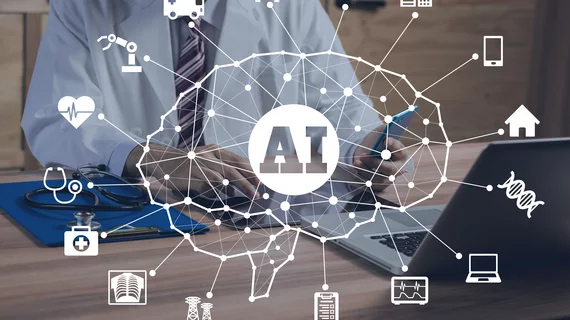Partners HealthCare announces 12-month AI software rollout
Boston-based medical network Partners HealthCare will be rolling out new software and support services over the next 12 months with the goal of involving more physicians and health experts in AI research.
The effort, announced April 8 at the World Medical Innovation Forum in Boston, aims to “put AI in the toolbox of every researcher and clinician,” according to a release. Spearheaded by the Massachusetts General Hospital and Brigham and Women’s Hospital Center for Clinical Data Science (CCDS), it will reportedly focus on providing health professionals with the access to data, GPU compute capacity and supporting software they need to develop their own clinically applicable algorithms.
The CCDS is planning a broad rollout to the Partners system over the next year, but it’s already offering AI capabilities and support, as are a host of other medical organizations. The same day Partners HealthCare announced its new initiative, the American College of Radiology Data Science Institute launched its own innovation—a software platform called ACR AI-LAB that allows radiologists to interact with AI and build algorithms using their own data at their own secure facilities.
According to the release, CCDS took a similar approach, partnering with Nvidia and Ohio State University to demonstrate the ability for new transfer learning approaches to generate more robust, adaptable algorithms. One project involved transferring a cardiac computed tomography angiography model that had been co-developed with Nvidia to OSU, where it was re-trained using OSU data and yielded more accurate results.
“Currently, focused and siloed pockets of domain expertise in AI reside within specific departments or labs at several large academic medical centers, but making AI an enabling technology across the field of healthcare has been a challenge for many facilities,” Keith Dreyer, DO, PhD, chief data science officer for Partners HealthCare, said in the release. “The truth is, you don’t have to be a computer scientist or data scientist to participate in the creation of AI—we are just starting to see increasing availability of tools to enable on-premises development of AI models by clinicians.”

